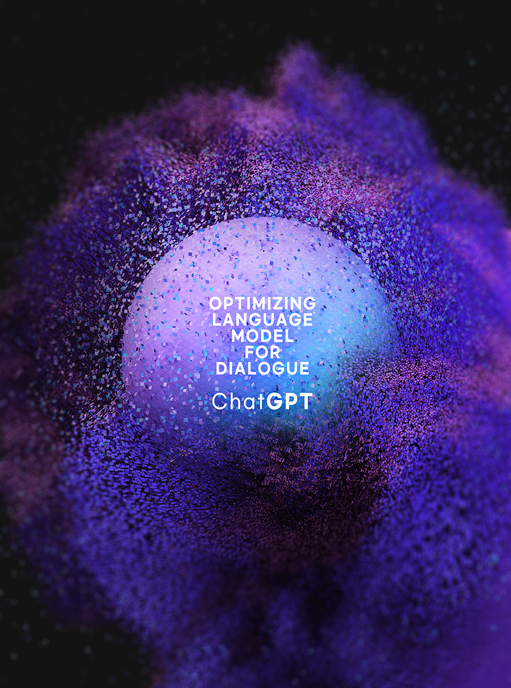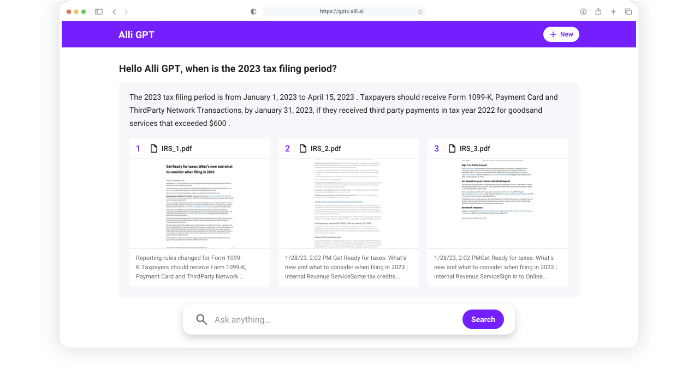Korean AI developers scurry to jump on generative AI bandwagon
S.Korean tech startups armed with generative AI technologies have emerged as the next big thing in the venture capital world
By May 04, 2023 (Gmt+09:00)
LG Chem to sell water filter business to Glenwood PE for $692 million


Kyobo Life poised to buy Japan’s SBI Group-owned savings bank


KT&G eyes overseas M&A after rejecting activist fund's offer


StockX in merger talks with Naver’s online reseller Kream


Mirae Asset to be named Korea Post’s core real estate fund operator



AlphaGo was behind the first artificial intelligence shock in South Korea after its landslide victory in a Go match against the country’s legendary Go master Lee Sedol in 2016. And it is generative AI-powered chatbots that are creating a new AI sensation palpable across the globe, including tech-savvy Korea, already famed for its high smartphone and internet penetration.
Korean startups from the younger generation that have enjoyed the country’s well-established technology infrastructure are also gearing up for a new market promised by generative AI, which is forecast to grow to $109.3 billion in 2030 from $10.1 billion in 2022, according to Grand View Research, an India and US-based market research and consulting firm.
Generative AI is a set of algorithms, capable of creating verbal and visual content to specific requests from the training data, and chatbots are the most well-known generative AI service. Significant advancement in cloud technology has contributed to the opening of a new era of generative AI.
Korean startups have hurried to join the new AI sensation by introducing their original generative AI services in the past year, and their efforts have succeeded in garnering the interest of venture capitalists seeking to ride on the AI investment frenzy.
Scatter Lab recently attracted 15 billion won ($11.3 million) in investment from Korean telecom major SK Telecom Co. for its chatbot Lee Lu-da powered by its generative AI model Luda Gen I.
Pion Corporation in April drew 10.5 billion won in a Series A funding round for its generative AI service VCAT.AI, a video creative automation tool that generates tens of commercial videos and banner ads complete with text and images in a few minutes with only an internet link containing a product’s information.

In anticipation that the new-generation AI technology could be an effective alternative to a human labor force, investments in related services more than doubled to $1.4 billion in 2022 from $60 million in 2017, according to PitchBook, a global financial data and software provider.
More Korean tech startups have joined the generative AI boom.
CHATBOTS, IMAGE-GENERATIVE AI LEAD NEW AI CRAZE
Allganize Inc., founded by Korean national Changsu Lee in California in 2017, has developed a business AI chatbot Alli GPT, which fuses OpenAI’s ChatGPT with its proprietary chatbot Alli.
LionRocket in March rolled out a generative AI platform that creates images from text commands, and the service has generated more than a million images since its launch.
Draph Inc. recently signed a contract with a local used car platform Charancha to provide its AI solution that can upgrade smartphone photos into professional photographer-level quality photos.

DeepBrain AI provides an AI service that creates AI avatars and videos with its text-to-speech converting technology, while Wayne Hills Bryant AI has introduced AI technology that generates videos from text and speech.
Wrtn Technologies is well known for its AI-powered writing tool using natural language text understanding technology. The generative AI platform help its users create drafts of their writing projects.
TwoBlockAi offers KEEwiT, which analyzes the quality of students’ term papers and essays.
NATURAL LANGUAGE SPEECH UNDERSTANDING
Generative AI for voice conversion is also popular.
Neosapience’s AI voice actor service Typecast is used by 1.3 million people from 45 countries from the US to China. Its diverse AI voice actors help its users to generate various audio and video contents with text.
Humelo has developed an AI service that can copy “all the voices all around the world,” according to the company.

POZAlabs aims to make music creation less painful with its natural language generation model, which enables its users to create music with keywords and content.
HURDLES TO OVERCOME
But the success of Korean generative AI startups hinges on whether they can overcome challenges like growing competition from foreign rivals that have recently pushed the advance of Korean language generative AI services.
OpenAI’s latest ChatGPT version is touted for its excellent Korean skills considered better than the previous version’s English skills.
The increased risks of using generative AI, like cyber security and personal privacy issues, should be addressed properly, too.
Recently, the European Commission introduced new copyright rules that require companies deploying generative AI tools to disclose any copyrighted material used to develop their services.
Calls for stronger copyright protection in generative AI creation through legal regulations are expected to gain traction following the latest EC action.
Write to Joo-Wan Kim at kjwan@hankyung.com
Sookyung Seo edited this article.
-
 EntertainmentHYBE bets big on AI; to unveil generative AI project in May: Chairman Bang
EntertainmentHYBE bets big on AI; to unveil generative AI project in May: Chairman BangApr 27, 2023 (Gmt+09:00)
3 Min read -
 Artificial intelligenceS.Korean startup DeepBrain AI unveils 3D virtual human B2B technology
Artificial intelligenceS.Korean startup DeepBrain AI unveils 3D virtual human B2B technologyMar 24, 2023 (Gmt+09:00)
2 Min read -
 Artificial intelligenceUpstage’s AskUp offers Korea’s first GPT-4-powered chatbot service
Artificial intelligenceUpstage’s AskUp offers Korea’s first GPT-4-powered chatbot serviceMar 17, 2023 (Gmt+09:00)
2 Min read -
 Korean startupsDeepBrain AI joins CB Insights' Global 250 Generative AI Startups list
Korean startupsDeepBrain AI joins CB Insights' Global 250 Generative AI Startups listFeb 17, 2023 (Gmt+09:00)
1 Min read -
 Artificial intelligenceOnline portal Naver to release AI-powered search chatbot in H1
Artificial intelligenceOnline portal Naver to release AI-powered search chatbot in H1Feb 03, 2023 (Gmt+09:00)
2 Min read -
 Artificial intelligenceSouth Korean firms roll out AI chatbots that tug at the heartstrings
Artificial intelligenceSouth Korean firms roll out AI chatbots that tug at the heartstringsJul 19, 2022 (Gmt+09:00)
3 Min read


